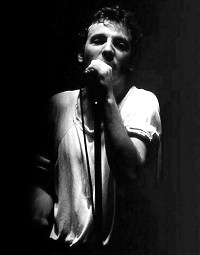
The truth is that while both are art forms music and verse are two completely different types of endeavour. Music is like chess in that it is intrinsically logical and self-contained: after we learn the rudiments our innate ability kicks in, allowing us to intuit what comes next. The skill requires more practice than learning, though both are essential to attain the level of refinement needed to compete with other masters. Not surprisingly, we have seen quite a few chess and musical prodigies in our history.

Poetry is language. It is like bridge in that it is arbitrary: we need to learn a wide variety of systems, conventions and vocabulary before we can perform at a competent level. There is etymology but no universal logic to words; otherwise what we call "a pencil" wouldn't be called "un crayon" in France and "karandash" in Russia. Innate ability may help us win a spelling bee but it won't allow us to unravel a new language based on a few grammar and syntax rules, nor will it allow us to "reinvent" poetry without long exposure to it and an understanding of its rudiments. This explains why there are few, if any, bridge or poetry prodigies. Arthur Rimbaud may be the closest thing to our mythical "natural poet" but his youth was devoted to the study of literature.
Obviously, there is no positive correlation between musical and poetic acumen. Is there a negative one? I believe there is.
Let's begin with lyrics. Most of the great lyricists of our time work in unsophisticated musical genres, primarily folk: Leonard Cohen, Bob Dylan, Gordon Lightfoot, Simon & Garfunkle, et cetera. As we ascend the scale of musical complexity the lyrics get progressively worse, hitting their nadir with the libretto.
What about individuals, though? Does musical ability decrease the likelihood that one will be able to write poetry as well as others in the same intelligence bracket? If so, how?
I have a number of "poet" friends who are either musicians or music critics. All have extremely sophisticated tastes. Not one of these could write competent, interesting rhythmic verse--free or metrical--to save their lives. Most can't detect it when they hear it.
"I've immersed myself in music for decades. You're trying to tell me that I don't recognize rhythm? How can that be?"

Answer: The rhythms of speech and the rhythms of music are entirely different. Melisma is one of thousands of things a lyricist can get away with that a poet cannot: Bruce Springsteen makes multiple beats out of the word "I" in singing "I'm on Fire". Try that in speech and you'll look like a mo-o-o-o-ron.
I can see these people playing music in their heads as they read their prose-with-linebreaks or ham-fisted doggerel aloud. They are the poetic equivalent of tone deaf air guitarists singing in the shower. They have what I call "sonic dysplasia": a gifted music lover's inability to discern or create verbal rhythmic alignments. The frustration is compounded by the fact that the sufferers don't know they are afflicted. Not one understands why poetry audiences and editors avoid them.
Is the condition treatable? Maybe. However, it might be that the ability to hear musical rhythms occludes one's ability to discern poetic ones. Perhaps this is something future human psychologists will investigate. Unfortunately, squirrel psychologists are too busy trying to understand why we act so...well...squirrelly.

No comments:
Post a Comment
Your comments and questions are welcome.